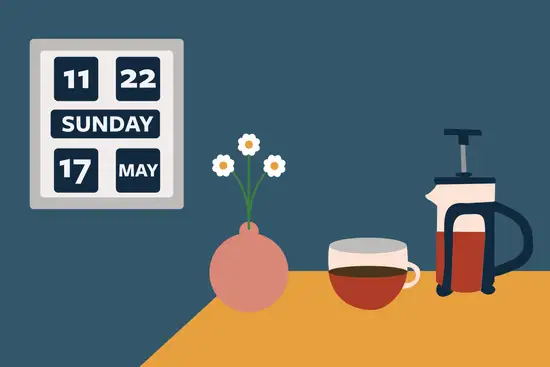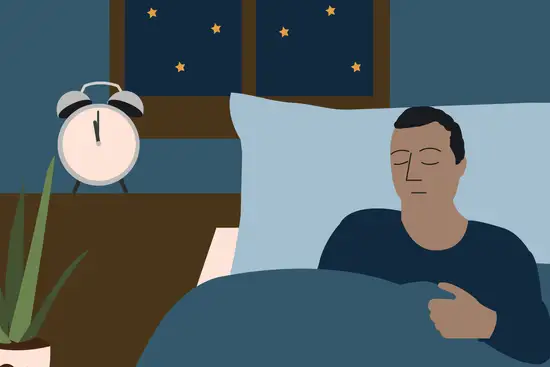You’ve had a busy day and you’re physically and mentally exhausted. You need a rest and so you:
- ease into your favourite armchair
- close your eyes
- let a feeling of peace and calmness wrap around you.
This is sometimes described as a period of ‘quiet wakefulness’.
But is taking a quick rest — closing your eyes, putting your feet up and clearing your mind for a couple of minutes — as beneficial as getting some sleep?
Let’s find out.
There are numerous claims relating to the benefits of rest to mind and body. However, nothing compares to the benefit of sleep.1
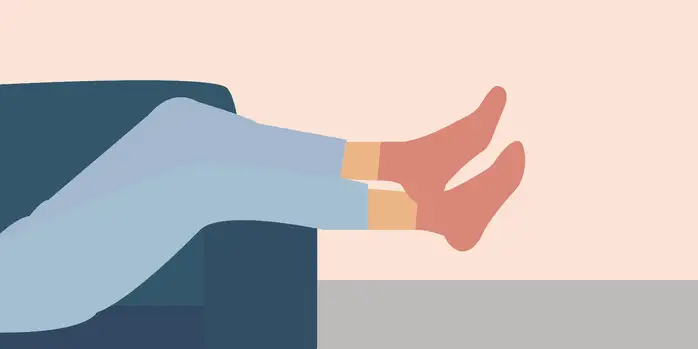
Closing your eyes to the value of sleep
Resting with your eyes closed can calm your mind and help your muscles to relax. Your blood pressure drops and your heart rate slows. Resting can also:
- reduce stress
- improve your mood
- increase alertness
- boost mental clarity
- improve creativity
- increase motivation.
All of these are undoubtedly good things but they’re simply not a replacement for sleep. Rest and sleep may be similar but it’s the differences that are of crucial importance.
The rhythm of rest
When you close your eyes and relax, your brain produces a pattern of slow brain waves, called the alpha rhythm (often refered to as the ‘relaxation rhythm’). When we fall asleep, however, this alpha rhythm disappears.
The relaxation rhythm doesn’t occur during sleep. During your time in bed, alpha is only experienced when you’re awake with your eyes closed.
After the onset of sleep — following the disappearance of alpha — there are a number of other wave forms that occur. These characteristics of sleep include:
- sleep spindles
- k-complexes
- delta waves.
These wave forms are involved in important processes in our brains when we sleep.
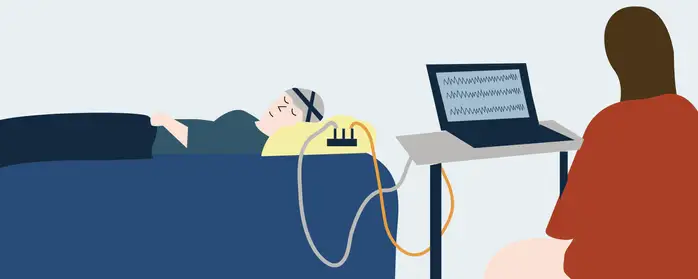
Wave hello to deeper sleep
During our sleep, we cycle through 4 stages of sleep, in which our sleep becomes increasingly deeper. When we fall asleep, we first enter stage N1, then progress through to N2, N3 and finally into rapid eye movement (REM) sleep, which is our deepest sleep stage.
We cycle through these stages multiple times per night, which each full sleep cycle lasting around 90-110 minutes in adults. Different wave patterns are associated with different sleep stages.
Sleep spindles only occur only during N2 sleep and are thought to be involved in many sleep-related functions, from memory consolidation to brain development.
K-complexes are also exclusive to N2 sleep and also seem to play a role in memory consolidation as well as stopping us from being woken by the slightest thing during the night.
Delta waves are the deepest brainwave state. Delta only ever occurs during N3 sleep. These waves are particularly important in terms of maximising the range of benefits sleep offers.
During slow-wave sleep, your brain processes new information and tasks and arranges it into memories. It’s also the stage of sleep that convinces you that you’ve enjoyed a restful and recuperative sleep.
During rest, you experience none of these important phenomena or waveforms and so, from an EEG point of view, there’s no comparison between the brain during quiet wakefulness and the brain during sleep.2
Why deep sleep is better than rest
It’s only during the deeper N2 and N3 stages of sleep that we experience a substantial cognitive boost. These stages of sleep:
- optimise our immune, endocrine and metabolic systems
- release hormones such as growth hormone and those that regulate appetite and satiety
- flush out neurotoxins such as beta-amyloid and tau proteins that have been implicated in an increased risk of Alzheimer’s.
Meditation: the best of rest
The only type of relaxation that’s been shown to have some of the benefits of sleep is meditation.3 Even then you’re unable to achieve the important delta waves stage of sleep.
It’s reported that meditation can help optimise the amount of sleep you need but any effect that it has on duration of sleep will mainly be in the form an increase in the lighter stages of N1 or N2 sleep.
There’s no change in the proportion of the night spent in the more important N3 or REM sleep.
There are many claims, although not directly referenced, that Buddha himself was able to survive on minimal sleep due to spending so much of his time meditating.
In the 21st century ‘mindfulness’ has become a popular form of rest. It’s used to decribe a form of meditation in which you focus on what you’re feeling and sensing in the moment.
Mindfulness meditation has been shown to have positive effects on levels of stress, anxiety and depression.45 As our sleep is influenced by our mental wellbeing, anything that improves how we feel may also indirectly help us to sleep better.
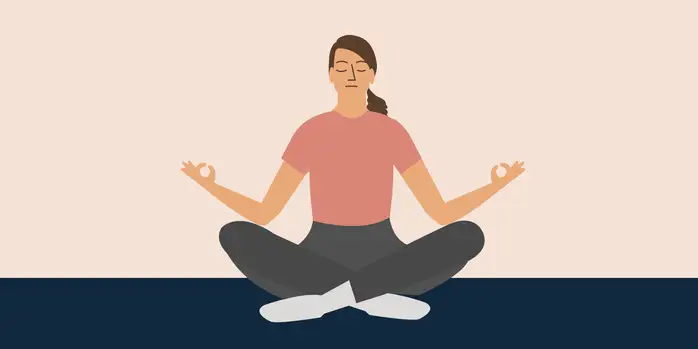
Don’t settle for rest if you can’t settle down
It’s recommended that if you can’t fall asleep within 30 minutes at the start of the night — or you’re awake for 20 minutes in the middle of the night — it’s time to act.
Get up and go to another room, do something relaxing and only go back to bed when you feel sleepy again. Lying in the dark with your eyes closed, however calm and comfortable you may be, provides none of the benefits of actual sleep.
And let’s be honest — most people aren’t going to lie in bed, in the middle of the night, in a permanent state of relaxation. It’s much more likely that they’re going to get even more wound up the longer they can’t get to sleep.
They’ll start hating their duvet, pillow and mattress, become increasingly uncomfortable and even resentful of their blameless partner who’s fallen fast asleep.
It makes no sense to accept this state of affairs when digital sleep clinics like Sleepstation can provide simple techniques and tips which can transform wakefulness — whether serene or agitated — into a good night’s sleep.
Find out what we can do to help you here.
Summary
- It’s fine to build rest into your day.
- We all benefit from taking time out from the stress and anxiety in our lives.
- Rest is no substitute for a poor night’s sleep.
- Don’t settle for staying awake at night — be proactive about your sleep.
- Try to get good sleep each and every night.
References
- Lubin A, Hord DJ, Tracy ML, Johnson LC. Effects of exercise, bedrest and napping on performance decrement during 40 hours. Psychophysiology 1976;13:334–9. ↩︎
- Malhotra RK, Avidan AY. Sleep Stages and Scoring Technique. Atlas of Sleep Medicine, Elsevier; 2014, p. 77–99. ↩︎
- Kaul P, Passafiume J, Sargent CR, O’Hara BF. Meditation acutely improves psychomotor vigilance, and may decrease sleep need. Behav Brain Funct 2010;6:47. ↩︎
- Kuyken W, Warren FC, Taylor RS, Whalley B, Crane C, Bondolfi G, et al. Efficacy of mindfulness-based cognitive therapy in prevention of depressive relapse: An individual patient data meta-analysis from randomized trials. JAMA Psychiatry 2016;73:565. ↩︎
- Rusch HL, Rosario M, Levison LM, Olivera A, Livingston WS, Wu T, et al. The effect of mindfulness meditation on sleep quality: a systematic review and meta-analysis of randomized controlled trials: Effect of mindfulness meditation on sleep. Ann N Y Acad Sci 2019;1445:5–16. ↩︎
